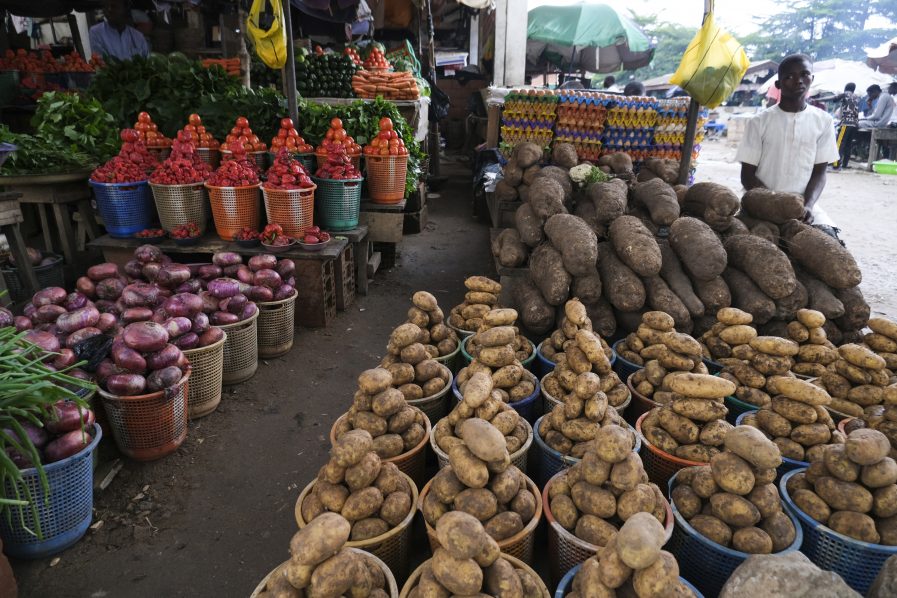
- 100 under-five children die every hour, two million suffer acute malnutrition
- Nigeria loses $1.5 billion of its GDP to malnutrition yearly
- UNICEF urges FG to introduce food subsidy, reduce taxes
- FG, stakeholders propose $60 million to tackle malnutrition
The malnutrition crisis rocking many households in the country has assumed a severe dimension with galloping food inflation and street prices of commodities now beyond the reach of many.
Already, 40 per cent food inflation has tumbled prices of staples by 300 per cent in less than a year, making it extremely difficult for many households to buy essential items, including basic protein, such as eggs.
The fallout is the growing cases of severe malnutrition in many parts of the country, estimated at over 100 percent increase in the last five months. Médecins Sans Frontières (MSF), a non-governmental organisation otherwise known as Doctors without Borders, recently raised the alarm that its in-patient facilities in the northern part of the country have recorded an extraordinary increase in admissions of severely malnourished children with life-threatening complications, exceeding last year’s figures by over 100 per cent in some locations.
Records by the group showed that in April 2024, its medical team in Maiduguri admitted about 1,250 severely malnourished children with complications to the in-patient therapeutic feeding centre, doubling the figure for April 2023.
By the end of May, the centre accommodated 350 patients, far surpassing the 200 beds initially designated for the peak malnutrition season in July and August. In the Northeast, its operated facility in Bauchi State’s Kafin Madaki Hospital recorded a significant 188 per cent increase in admissions of severely malnourished children during the first three months of 2024, compared to the same period in 2023.
In the Northwest, the in-patient centres in Shinkafi and Zurmi areas of Zamfara State have received up to 30 percent more monthly admissions in April compared to March. Talata Mafara’s facility saw about 20 per cent increase in the same period.
Similarly, MSF in-patient facilities in major cities like Kano and Sokoto are also reporting alarming surges, by 75 and 100 per cent respectively. The therapeutic feeding centre in Kebbi State also witnessed an increase of more than 20 per cent in inpatient admissions between March and April.
In an interview with The Guardian, MSF’s Nigerian representative, Dr Simba Tirima, said the country has a serious
emergency at hand and must be tackled headlong.
“The Ministry of Health has identified about two million children as suffering severe acute malnutrition and may likely die if they don’t get the necessary help.
“Six million others have been identified as having moderate malnutrition. If those are not addressed, they would become severe acute malnutrition and we know what the end state is. We need all hands on deck,” Tirima stated.
He disclosed that his group in 2023, treated 255,058 children of malnutrition, noting that while 202,780 were out-patients, 52,278 others were in-patients, expressing fears that the numbers may double if urgent steps are not taken.
Tirima stated that though there is a global trend with close to 300 million people globally facing high levels of food insecurity; food inflation is a major contributing factor to the present malnutrition crisis in Nigeria.
“Presently in Northern Nigeria, we have 930 beds for children with severe acute malnutrition, we also support more than 33 outstation feeding centres as well.
Presently, all the beds are occupied; we need more beds for children with acute malnutrition. “In Maiduguri alone, we need more than 400 beds, which is for children who have very severe conditions and require intensive management for them to come out of that acute state,” Tirima added.
According to the United Nations Children’s Fund (UNICEF), an estimated two million children in Nigeria suffer from severe acute malnutrition (SAM), but only two out of every 10 children affected are currently reached with treatment, while seven per cent of women of childbearing age also suffer from acute malnutrition.
In addition, the agency noted that Nigeria loses about $1.5 billion of its Gross Domestic Product (GDP) to malnutrition every year. The reason is that it costs about N87,000 to procure a box of Ready-to-use therapeutic foods (RUTF) required to treat just one acute malnourished child, and this is aside from nursing and medical care, as well as other costs, considering that the child may come down with other complications like measles, malaria, diarrhoea, and meningitis, which would require more care and attention.
Recall that the National Bureau of Statistics (NBS), in its cost of healthy diet (CoHD) report for May 2024, said it now costs an average of N1,041 to have a single healthy food in a day. So, for an average family of six, it will cost about N6,246 to have a single healthy diet daily and between N187,380.00 and N193,626.00 every month, which is more than two times higher than the N70,000 new minimum wage.
The Guardian investigations showed that a bag of honey beans, which initially sold for N36,000 in December 2023,
now goes for as much as N195,000; a crate of egg, which sold for N2,200 now sells for N4,500 and N4,700 depending on the size, while a kilogramme of beef, which sold at N2,500 now goes for N6,000.
A kilogramme of Croaker fish jumped from N1,400 to N4,500; Titus is sold at N5,000 per kilogramme, a kilogramme of soft chicken is N4,500, hard one N5,550.00; while turkey is sold at N8,000. Stakeholders have warned that the malnutrition problem in Nigeria is an emergency, hence the need to ramp up actions to curb the
problem.
Considering the negative effects of malnutrition and its implication on the citizenry, the Federal Government and
stakeholders in food and nutrition security have proposed $60 million to tackle the problem.






